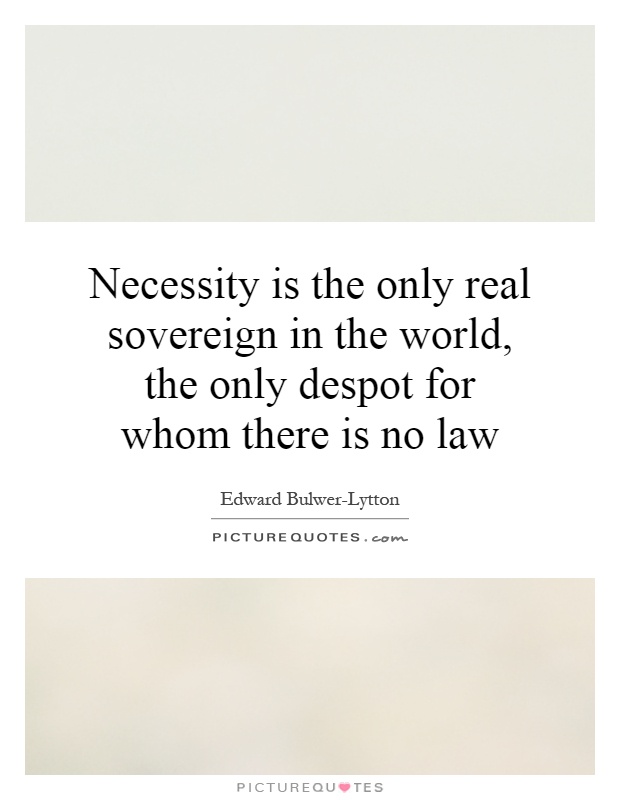Necessity is the only real sovereign in the world, the only despot for whom there is no law

Necessity is the only real sovereign in the world, the only despot for whom there is no law
Edward Bulwer-Lytton, a renowned English novelist and politician, once famously said, “Necessity is the only real sovereign in the world, the only despot for whom there is no law.” This statement encapsulates the idea that when faced with dire circumstances or urgent needs, individuals are often compelled to act in ways that may go against established norms or laws. In other words, necessity can override any other considerations and force people to make difficult decisions.Bulwer-Lytton’s assertion can be interpreted in various contexts, but it is particularly relevant in times of crisis or emergency. When faced with a life-threatening situation or a pressing need, individuals may feel compelled to take drastic measures to ensure their survival or well-being. In such situations, the usual rules and regulations may seem irrelevant or inadequate, and people may be forced to act outside the boundaries of conventional morality or legality.
For example, in times of war or natural disasters, individuals may be forced to steal food or supplies in order to survive. While theft is generally considered a criminal act, the necessity of obtaining essential resources for survival may justify such actions in the eyes of those who commit them. Similarly, in cases of self-defense, individuals may be compelled to use force against an attacker in order to protect themselves or others, even if it means causing harm or even death.
Bulwer-Lytton’s statement also highlights the idea that necessity can be a powerful motivator for change. When faced with urgent needs or challenges, individuals may be driven to innovate, adapt, or take risks in order to overcome obstacles and achieve their goals. In this sense, necessity can be seen as a catalyst for progress and transformation, pushing individuals to think creatively and act decisively in the face of adversity.
Overall, Bulwer-Lytton’s assertion that “necessity is the only real sovereign in the world, the only despot for whom there is no law” underscores the idea that when faced with urgent needs or dire circumstances, individuals may be compelled to act in ways that defy conventional norms or laws. In such situations, the imperative of survival or well-being can override any other considerations and force people to make difficult decisions in order to meet their needs.












 Friendship Quotes
Friendship Quotes Love Quotes
Love Quotes Life Quotes
Life Quotes Funny Quotes
Funny Quotes Motivational Quotes
Motivational Quotes Inspirational Quotes
Inspirational Quotes